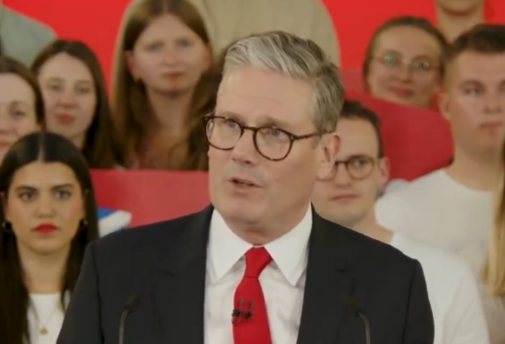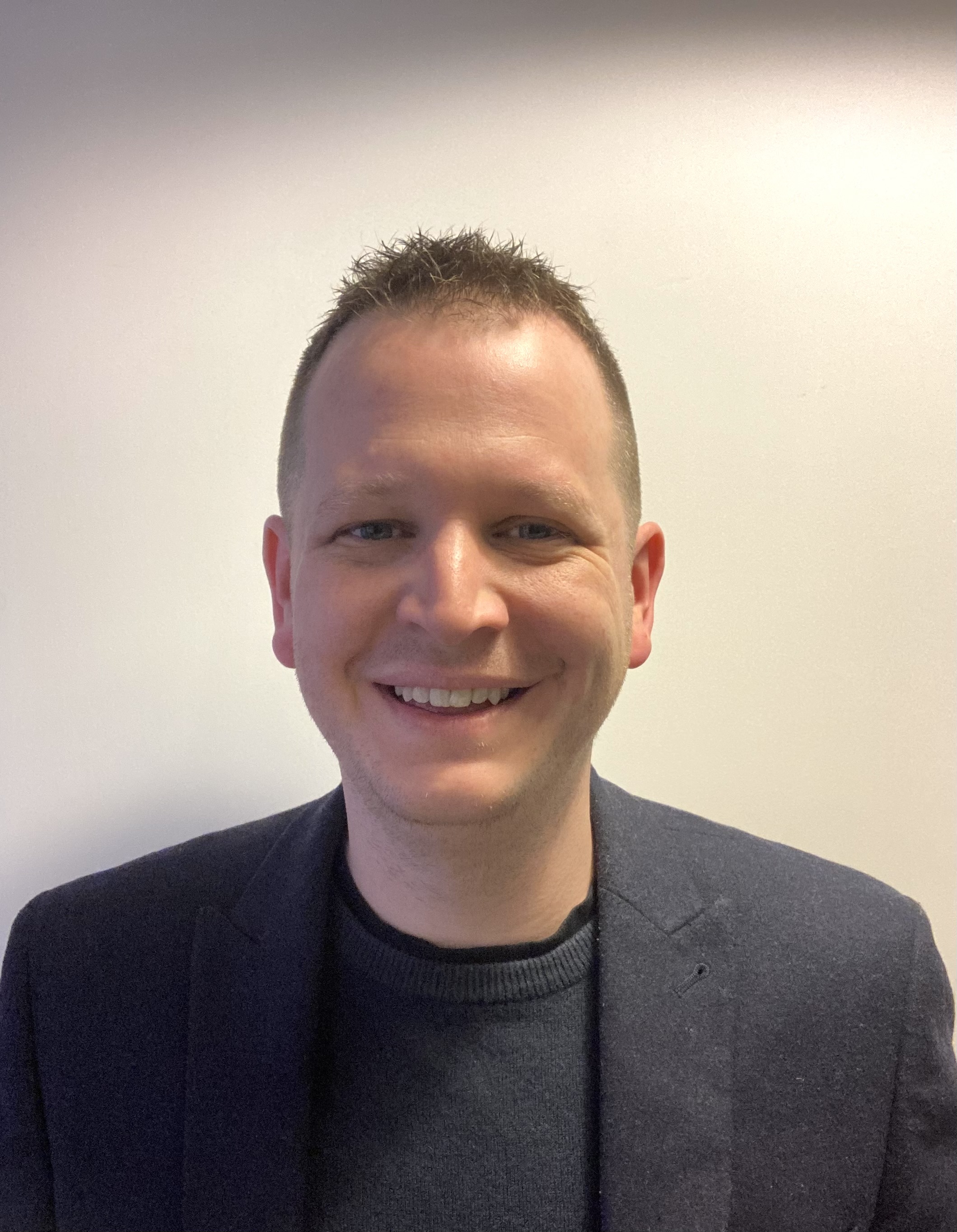Jacob Lant is Chief Executive of National Voices, the coalition of over 200 health and care charities. This eventful week centres around the launch of National Voices’ five-year strategy and Jacob’s attendance at the Labour Party conference.
________________________________________________________________
Monday
Today begins with some big news, the launch of National Voices’ new five-year strategy. This feels momentous, as it is something we have been working on for a while. My favourite part of the process, and the most important, was the engagement with our members, people with lived experience and other stakeholders across the sector. Their input has enabled us to co-produce a strategy that’s ambitious, but also provides us with clear focus. After all, good strategies are about ensuring, in a world full of so many causes worthy of attention, that we target our efforts to achieve tangible change.
I’m physically starting the week in Liverpool at the Labour Party Conference. My colleague Sharon, our Director of Policy and External Affairs, and I have a long day of roundtables, meetings and other events ahead of us. We are also looking forward to seeing and supporting our members who are in attendance.
In total I’ll be involved in at least five conference sessions, three of which are all about moving care closer to home. This is one of the new government’s three big policy shifts, so the focus on this is not surprising. But the conversations themselves will explore everything from how this can make the NHS more financially sustainable, how it will support more prevention and how it can help tackle inequalities. It’s a lot to ask of a single policy if you think about it, and the bigger question still remains, how can we achieve it?
Taking inspiration from our new strategy, we think one of the key reasons why so little progress has been made is because the current measures of success pull in the wrong direction. If we want to provide more care in the community, to help people stay well and prevent them needing hospital care then we can’t judge the success of the NHS solely on the size of the elective backlog or the number of operations it carries out. Success needs to be based on the outcomes we want to see, which is more people living healthier for longer.
Tuesday
The best bit about Party Conference season is bumping into our members and partners and catching up on their priorities and insights. A few highlights from me:
• Listening to Fiona Loud, Policy Director at Kidney Care UK, put a very pertinent question to the new Minister of State for Care, Stephen Kinnock, about at home dialysis services. “If government wants to shift more care into the community, why are we not investing more in the community services which have already been shown to make a massive difference to patient experience?”
• Speaking with Georgina Carr from the Neurological Alliance about their new report “Are we listening? The role of patient experience in supporting and informing service improvement in the NHS”.
• Discussing with Parkinsons UK about the growing impact of medications shortages.
This is a topic we’re hearing more and more about from our members, affecting a whole range of conditions. We know the Department of Health and Social Care is working to address the international supply issues, but there is much more than can be done to help manage the impact on patients when supply shortages do occur.
In the evening, I got to attend a brilliant showcase of health and care charities hosted by Hannover, which was also attended by the entire ministerial team. It was positive to hear Wes Streeting in particular set out the importance of the VCSE in helping Labour achieve its health mission.
After all that work though, it was good to go for a cheeky Chinese meal with friends from the Richmond Group and Patients Association. We are working increasingly closely with each other to create a united voice for patients on key topics, and so it is important to also take the time to build our social connections too.
Wednesday
Wednesday marks the final day of the conference, and it has absolutely flown by. I think as a sector, health and care charities have really shown that we are ready and willing to help the Labour government deliver their health mission. And there have been strong reassurances from Ministers about the strategic role they see us all playing in the development of the NHS 10-year plan.
It was also good to hear the Secretary of State’s speech. He repeated his line about the NHS being ‘broken’, something which I have said before has really resonated with those we work with. It feels like someone at the top of the pyramid has finally acknowledged that things in the NHS are very far away from where they need to be. Crucially though, he also talked about the NHS not being beaten. We do still need to provide hope on the horizon for patients and staff that the NHS can be fixed. It is a difficult balance to strike, but one Wes and his team will be well placed to get right as long as they keep up their efforts to engage with communities and the VCSE sector.
Thursday
I am delighted to hear that a podcast I recorded for National Health Executive at the beginning of this month has gone live today. In the piece I do my best crystal ball routine talking about Lord Darzi’s report before it was actually published, but having been involved in the report’s development and having engaged with loads of members on the topic I was confident on what needed to be said.
Reflecting on the Darzi report now it is out, I stand by my view. It was a really important piece of analysis, done at speed. But because it relied so heavily on published data sources and existing insight, more could have been done to acknowledge that the experiences and outcomes of the many people and many conditions that are invisible simply because the system doesn’t collect enough data on them.
Friday
Today, I am going to meet the NHS Urgent and Emergency Care (UEC) Operations Teams to learn a bit more about how they are planning to cope with peaks in demand over the coming winter.
Working in a small and incredibly busy charity, it can be easy to focus on the day-to-day, especially after spending so much time out of the office this week. But taking the time to see how colleagues working in the NHS do their job is vital. It serves as an important reminder that we are all on the same team, just trying to improve care for patients.
At this meeting I have been asked to help set the scene by outlining how patients and the public talk about their experiences of A&E and ambulances. A bit counter-intuitively, I will be discussing how waiting times are often the least important factor of a good UEC experience, with people ranking communication, reassurance and compassionate care above how long it takes to be seen. Of course, I also want to talk about those people who are waiting more than 12 hours in emergency departments, and the fact they are predominantly older people and those experiencing mental health challenges.
If I have any energy left, I will finish the week with a big clear out of emails before heading out on the road again for the Conservative Party conference on Sunday.
Latest News
-
Volunteer charity treasurer jailed for four years over £285,000 fraud
-
Burglar jailed after targeting children’s hospice charity
-
Mental health charity adopts four-day week permanently following pilot
-
Charity Commission considers complaint from Alan Turing Institute whistleblowers
-
Career Path: How Tracey Hallam went from a childminder to working in a cancer charity
-
Former council boss with HIV to lead Terrence Higgins Trust’s board
Charity Times video Q&A: In conversation with Hilda Hayo, CEO of Dementia UK
Charity Times editor, Lauren Weymouth, is joined by Dementia UK CEO, Hilda Hayo to discuss why the charity receives such high workplace satisfaction results, what a positive working culture looks like and the importance of lived experience among staff. The pair talk about challenges facing the charity, the impact felt by the pandemic and how it's striving to overcome obstacles and continue to be a highly impactful organisation for anybody affected by dementia.
Charity Times Awards 2023
Mitigating risk and reducing claims

The cost-of-living crisis is impacting charities in a number of ways, including the risks they take. Endsleigh Insurance’s* senior risk management consultant Scott Crichton joins Charity Times to discuss the ramifications of prioritising certain types of risk over others, the financial implications risk can have if not managed properly, and tips for charities to help manage those risks.
* Coming soon… Howden, the new name for Endsleigh.
* Coming soon… Howden, the new name for Endsleigh.
Better Society

© 2021 Perspective Publishing Privacy & Cookies











Recent Stories